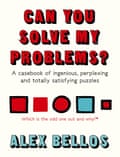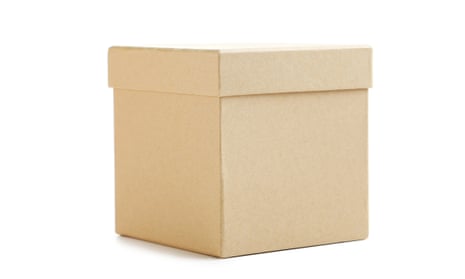Two boxes or not two boxes? That is the question.
For almost half a century Newcomb’s problem has been one of the most contentious conundrums in philosophy, with ramifications in economics, politics and computer science.
Vast amounts have been written about it, yet thinkers cannot agree on the right answer. Rather uncharacteristically for the gentle and cerebral world of philosophy, here is a debate in which each side is extremely confident they are correct and that the other side is wrong.
On which side do you sit? Read the problem and submit your decision below. In order to help you make up your mind, I’ve enlisted two philosophers with opposing views to persuade you as to the most sensible course of action.
The problem
Two closed boxes, A and B, are on a table in front of you. A contains £1,000. B contains either nothing or £1 million. You don’t know which. You have two options:
- Take both boxes.
- Take box B only.
You keep the contents of the box/boxes you take, and your aim is to get the most money.
But here’s the thing. The test was set by a Super-Intelligent Being, who has already made a prediction about what you will do. If Her prediction was that you would take both boxes, She left B empty. If Her prediction was that you would take B only, She put a ₤1 million cheque in it.
Before making your decision, you do your due diligence, and discover that the Super-Intelligent Being has never made a bad prediction. She predicted Leicester would win the Premier League, the victories of Brexit and Trump, and that Ed Balls would be eliminated yesterday from Strictly Come Dancing. She has correctly predicted things you and others have done, including in situations just like this one, never once getting it wrong. It’s a remarkable track-record. So, what do you choose? Both boxes or just box B?
Why you should take B only.
By Dr Arif Ahmed, Reader in Philosophy at Cambridge university and a Fellow of Gonville and Caius College. His most recent book is Evidence, Decision and Causality.
You know that the Super-Intelligent Being is always right. So whatever you do, She will have predicted it! If you take box B only, She will have predicted that and you will get £1 million. If you take both boxes for any reason – for instance, because of what David is about to say – She will have predicted that and you will get only £1,000. Clearly, you should take box B only.
Why you should take both boxes.
By Dr David Edmonds, author and editor of several books on philosophy, most recently, Philosophers Take On The World. He co-runs the Philosophy Bites podcast, and has just started Philosophy 247.
The Super-Intelligent Being has already made Her prediction before you make your decision. So, she has either put £1 million in Box B or not. What do you have to lose by choosing both boxes? You cannot influence a decision made in the past by a decision made in the present! Think of it this way. Suppose box B has transparent glass on the far side – the side I can’t see. And suppose I have a friend who can see through that glass side, and knows whether or not the £1 million is there. If my friend were allowed to communicate with me, what would his advice be? Surely it would be to take both boxes. If the £1 million is there, it is not going to disappear in a puff of smoke by my decision to take both boxes. Taking both boxes will always enrich me by an extra £1,000 in comparison to taking B only.
Now it’s your turn. What will you do?
I’ll be back later with the results of the decisions you made, and a further discussion of this problem.
Meanwhile, I encourage fierce debate – a boxing match? - below the line about the pros and cons of each of the choices. Explain why you chose what you did.

If you like questions with less contentious answers, you may enjoy my latest book. Can You Solve My Problems? A Casebook of Ingenious, Perplexing and Totally Satisfying Puzzles contains my favourite puzzles from the last 2000 years, along with historical, biographical and mathematical background. Available from the Guardian Bookshop and other retailers.
You can check me out on Twitter, Facebook, Google+, my personal website or my Guardian puzzle blog, in which I set a puzzle every other Monday.

Comments (…)
Sign in or create your Guardian account to join the discussion